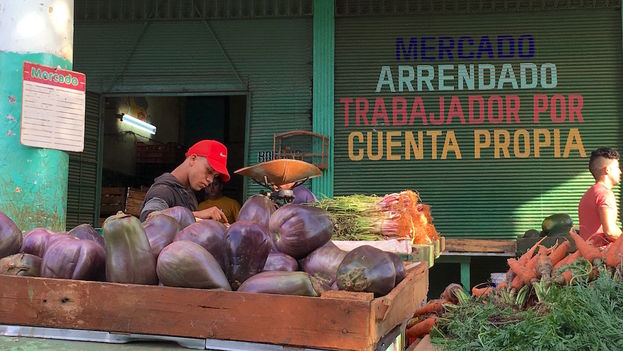
![]() 14ymedio, Havana, 26 October 2017 — The self-employed sector in Cuba grew by 56,560 workers during the period from September 2016 to September 2017, the official newspaper Juventud Rebelde (Rebel Youth) reported Thursday. The total rose from 522,855 employed in this form of work to 579,415.
14ymedio, Havana, 26 October 2017 — The self-employed sector in Cuba grew by 56,560 workers during the period from September 2016 to September 2017, the official newspaper Juventud Rebelde (Rebel Youth) reported Thursday. The total rose from 522,855 employed in this form of work to 579,415.
The number of people working in the private sector has continued to rise despite the fact that last August the government froze the issuance of permits for various activities, including the management of private restaurants and the renting of rooms or homes to tourists.
The measure was announced as part of a “systematic process of review and perfecting, aimed at correcting deficiencies,” said Marta Elena Feitó, deputy minister of Labor and Social Security.
The authorities announced that a series of measures would be implemented to prevent private workers from engaging in ‘irregularities’, but the bulk of the new regulations have not yet been released.
Data from the Ministry of Labor and Social Security (MTSS) “show a tendency to increase activity since October 2010, when this option of non-state employment was extended and relaxed,” the text says.
The MTSS also updated the composition of the sector: 32% is made up of young people; women represent a little more than a third of the total; 15% of the self-employed “combine [self-employment] with work in the state sector, while another 11% are retired,” the report said.
Of the total, 402,805 people have taken part in the Social Security program, which represents less than 70% of those who have a license to work on their own.
The production and sale of food is the main activity, with 61,301 people; followed by freight and passenger transport, with 57,911; in addition, 39,442 self-employed are licensed for rental of dwellings and rooms; and 24,736 are employed as telecommunications agents.
As a result of the reduction in public employment announced by Raúl Castro’s government in 2009, the self-employed sector has grown to now account for about 10% of the labor force, while the state sector has laid off 596,500 workers, according to one report from the Cuban Workers Center.
